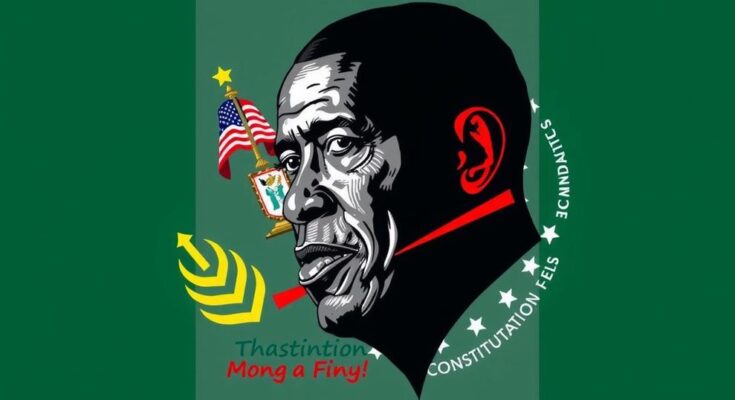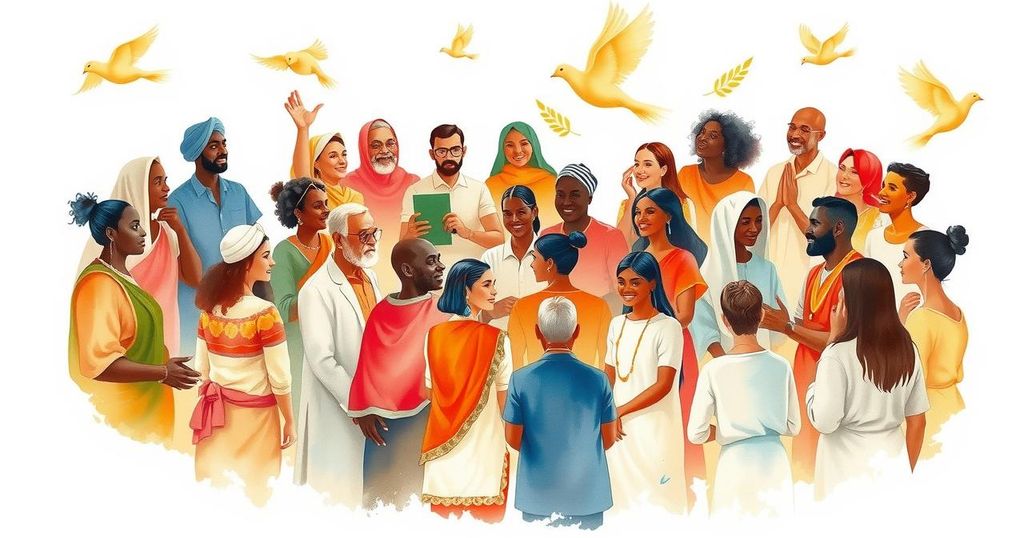President Felix Tshisekedi of the Democratic Republic of Congo announced plans to create a commission next year to revise the Constitution, citing its inadequacies and the political issues plaguing governance, including delays in forming the government. This proposal has stirred debate among opposition figures, who suspect it may be a ploy for Tshisekedi to retain power. The current Constitution was adopted in 2006 and has not been substantially revised since 2011.
In a recent announcement, President Felix Tshisekedi of the Democratic Republic of Congo proposed the establishment of a commission dedicated to revising the nation’s Constitution, slated to convene in the upcoming year. Speaking at a gathering in Kisangani, he expressed that the existing Constitution exhibits “weaknesses” and does not reflect the nation’s current realities. President Tshisekedi, who is currently in his second and final term under the 2006 Constitution, pointed to the prolonged delay in the formation of the government and provincial assemblies, attributing these issues to entrenched “selfish interests” among political factions. This announcement follows a tumultuous period marked by the lengthy induction ceremony of the government, which occurred nearly six months after his re-election due to negotiations within the ruling coalition reflecting a desire for adequate representation in the government from various parties. Judith Suminwa Tuluka, serving as the DRC’s first female Prime Minister, oversees a cabinet comprised of over 50 ministers. The call for constitutional revision has gained traction among Tshisekedi’s ruling coalition, with the Secretary General of the UDPS party noting that the late party leader, Etienne Tshisekedi, had previously advocated for such changes. However, the move remains contentious, with critics arguing that this could be a strategy for President Tshisekedi to extend his grip on power. In response to these allegations, President Tshisekedi clarified that any discussions concerning alterations to presidential terms should be left to the populace, asserting that such matters are not dictated by him. The existing 2006 Constitution, the third fundamental law adopted in the Democratic Republic of Congo through referendum, and previously revised in 2011, was a significant achievement of the transitional government established in 2003.
The Democratic Republic of Congo (DRC) currently operates under the Constitution adopted in 2006. This foundational document plays a crucial role in the governance and political framework of the country. It has undergone limited revisions, with the most recent modification occurring in 2011. Notably, this Constitution provides for a presidential term limit which has now become a contentious point amid political discussions surrounding potential reforms. President Felix Tshisekedi’s administration asserts that the current Constitution does not sufficiently address the present challenges facing the DRC, particularly in light of political instability and factional disputes within the ruling coalition. The initiation of a commission to review the Constitution indicates an acknowledgment of these complexities.
In conclusion, President Felix Tshisekedi’s announcement regarding the formation of a commission to review the DRC’s Constitution highlights significant political dynamics within the country. While the move is intended to rectify perceived flaws in the current constitutional framework, it also raises concerns about potential motives to extend presidential power. As the nation grapples with political fragmentation and calls for reform, the forthcoming discussions surrounding the Constitution will undoubtedly play a pivotal role in shaping the country’s governance and democratic processes.
Original Source: www.africanews.com




